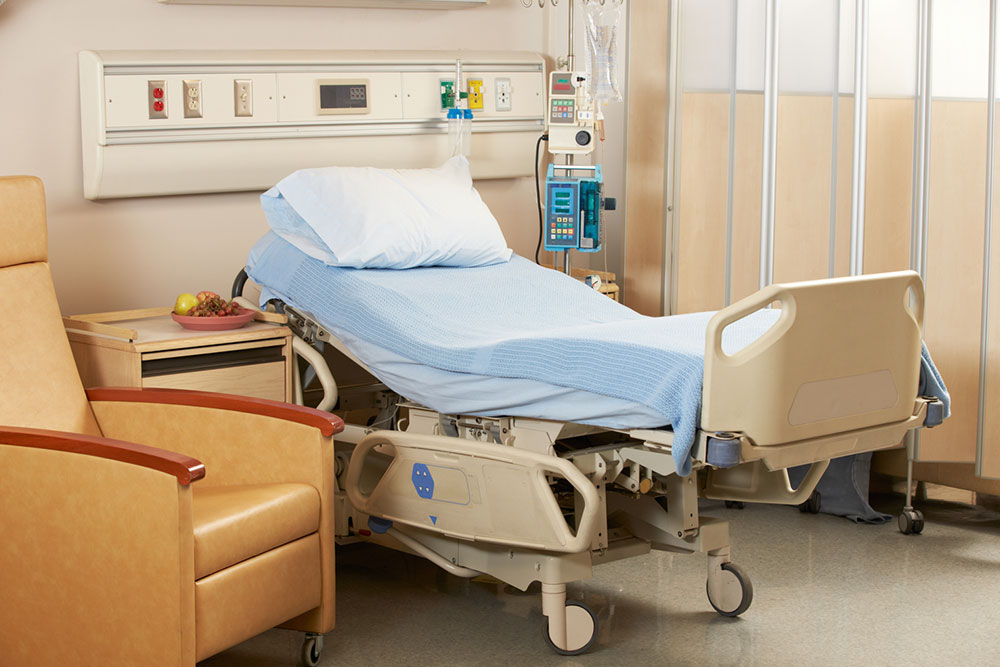Key Things to Know About Hospital Bed Prices
In times of illness or recovery, a hospital bed at home can provide much-needed comfort and assistance. When considering this essential medical equipment, understanding the hospital bed cost factors and choosing the right one for your specific needs is crucial. So, continue reading as we simplify everything you need to know about hospital bed prices and have provided tips to make an informed purchase for your or a loved one’s recovery.

Hospital bed for home price:
Hospital beds designed for home use come in various types, each with its own price range. Here’s a breakdown of prices for hospital beds for homes based on the type:
- Manual hospital beds : These are the most affordable hospital bed options, where the prices typically range from $500 to $2,000. They are manually adjusted using hand cranks and offer basic functionality.
- Semi-electric hospital beds : These are priced slightly higher, usually between $800 and $2,500. They offer electric adjustment for the head and foot sections, making them more convenient than manual beds.
- Full-electric hospital beds : These beds provide electric adjustment for the head, foot, and bed height. Prices generally start at $1,000 and can go up to $5,000, depending on additional features.
Adjustable hospital bed price
Adjustable hospital bed prices can vary based on their features and specifications:
- Basic adjustable beds : These beds offer simple head and foot adjustments, starting at around $400 and can go up to $2,500.
- Advanced adjustable beds : High-end models with additional features such as massage functions, USB ports, and wireless remote controls can range from $2,000 to $5,000.
Hospital bed with remote control price
A hospital bed with remote control capabilities provides ease of use and convenience. Hospital beds with remote control prices can vary:
- Standard remote-control beds : Basic remote-control hospital beds usually start at $1,000 and can go up to $3,000.
- Advanced remote-control beds : Beds with advanced remote-control systems, including programmable positions and memory settings, can range from $2,500 to $6,000.
Factors affecting hospital bed prices
Several factors can influence hospital bed prices, including:
- Type of bed : Manual, semi-electric, or full-electric hospital beds come at different price points.
- Adjustability : Beds with more adjustment options, such as height, head, and foot adjustments, tend to be more expensive.
- Additional Features : Beds with extra features like massage, USB ports, or advanced remote controls are priced higher.
- Brand : The brand of the hospital bed can impact its cost – market leaders have higher price points.
- Size : Larger or specialized beds may come with higher price tags.
Choosing the right hospital bed
Choosing the right hospital bed is crucial, especially for those new to this process. Here’s an informative breakdown to help you navigate the selection process:
Determine medical requirements
Before exploring hospital bed options, consult with your healthcare provider or therapist. They can assess your medical needs and recommend specific features required for your condition.
Understand the types of hospital beds
Hospital beds come in three main types: manual, semi-electric, and full-electric. Understanding the differences is essential:
- Manual hospital beds: These beds are operated manually using hand cranks for adjustments. They are typically the most affordable option.
- Semi-electric hospital beds: These offer electric adjustment for the head and foot sections, making them more convenient than manual beds.
- Full-electric hospital beds: These beds provide electric adjustment for the head, foot, and bed height. They offer the most convenience and are suitable for individuals with limited mobility.
Consider adjustability
Hospital beds offer various degrees of adjustability, including head and foot adjustments and bed height. Choose a bed with the right level of adjustability based on your medical requirements.
Evaluate additional features
Depending on your budget and preferences, you can find hospital beds with various extra features, such as:
- Massage functions : Some beds offer built-in massage features for added comfort.
- USB ports: Beds with USB ports allow you to charge devices conveniently.
- Wireless remote controls: Advanced remote controls enable the easy adjustment of bed settings, including programmable positions and memory settings.
Set a budget
Determine your budget for a hospital bed. Prices can vary significantly based on the type, features, and brand. Having a clear budget will help narrow down your options.
Focus on comfort
Comfort is paramount when selecting a hospital bed. Look for a mattress that provides adequate support while preventing pressure sores. Some beds come with specialized pressure relief mattresses.
Accessibility and ease of use
Consider the user’s ability to operate the bed. For individuals with limited mobility, an electric bed with a user-friendly remote control is often the best choice.
Durability and quality
Assess the bed’s build quality and materials to ensure it can withstand regular use. Beds with a sturdy frame and durable components are a wise investment.
Warranty and support
Check the warranty coverage and terms offered by the manufacturer or retailer. A reliable warranty can provide peace of mind.
Consult with a specialist
Those unsure which hospital bed to choose must seek guidance from medical equipment experts. They can provide valuable insights based on your specific needs.
By carefully considering these factors and consulting with healthcare professionals, you can make an informed decision and choose the right hospital bed that promotes comfort, mobility, and overall well-being.















